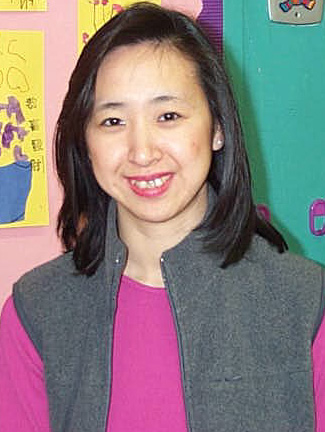Lesson Plan | Web
Purpose
of the project:
This curriculum
unit is developed for the pre-kindergarten level, supporting English as a Second Language learners.
This unit is based on a thematic approach to teaching and learning integrated with
multiple discipline areas - reading, writing, math, social studies, science, and technology.
This unit utilizes strategies that engage children in meaningful
activities; help to motivate children to acquire concepts, ask questions, and research
information; and provide opportunities for children to explore and develop visual-spatial concepts and problem solving skills.
Children are given opportunities to explore various machines that we encounter
in our every day lives. They work with the computer using various software programs to draw and build their own machine designs. They are also taught to use the digital camera to capture their activities and
creations.
Standards
addressed:
Students will:
*Use scientific inquiry to pose questions, seek answers, and develop solutions.
*Access, generate, process, and transfer information using appropriate technologies.
*Understand and apply scientific concepts, principles, and theories pertaining to the physical setting and living environment and recognize the historical development of ideas in science. *Apply technological knowledge and skills to design, construct, use, and evaluate products and systems to satisfy human and environmental needs.
*Understand the relationships and common themes that connect science and technology and apply the themes to these and other areas of learning.
*Apply the knowledge and thinking skills of science and technology to address real-life problems and make informed
decisions.
Software
and materials used:
Kid Pix, Fisher Price Toyland, Sammy's Science House
Computer, Printer, Digital Camera, Tape
Recorder
Students:
The target student grade level is pre-k. Most of our students are second language learners and heterogeneously grouped.
They do not have access to computers at home, and are first-time learners
of all technology introduced to them in this unit.
Overall
value:
This project incorporates
a science topic with reading, writing, social studies and technology. It encourages and stimulate children's imagination, curiosity and creativity. It helps develop children's visual-spatial concepts and motor skills. Very young children are provided with opportunities to explore with the computer, the digital camera, computer software programs, and many ordinary machines in our daily
life.
Tips
for teachers:
On a continuous basis, make connections between the project study
and the environment surrounding us. Stimulate children's imagination and creativity by allowing them to explore and discover on their
own. Be sure to have a large sample of machines in your classroom
for use in these activities. |

Donna Yung-Chan is an early childhood teacher
at P.S.1 in Manhattan Community School District Two. She has taught Pre-Kindergarten for the past 14 years.
In 1998, Donna received her National Board Certification. She was also awarded the Title 1 Distinguished Teacher Award given by
the New York State Education Department and New York City Board of Education in 1999.
E-mail: donna_yung@fc1.nycenet.edu
Estimated Class Periods to Complete: 10
or more
Subject Area: Science, General
Elementary, ESL
Beginning Grade Level: Pre-K
Ending Grade Level: K
|